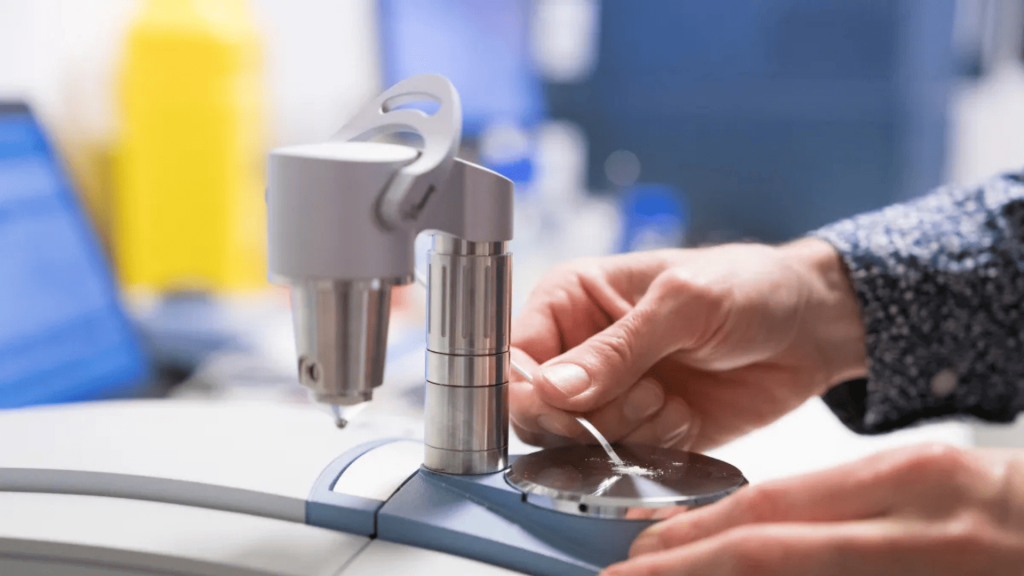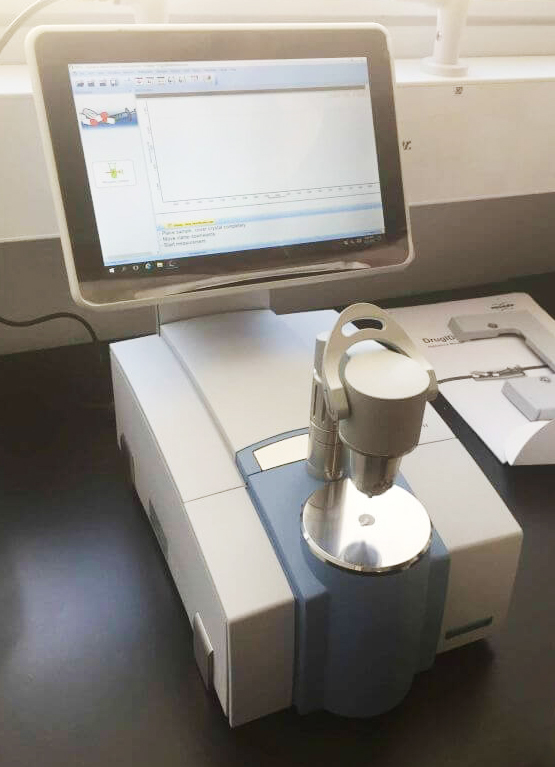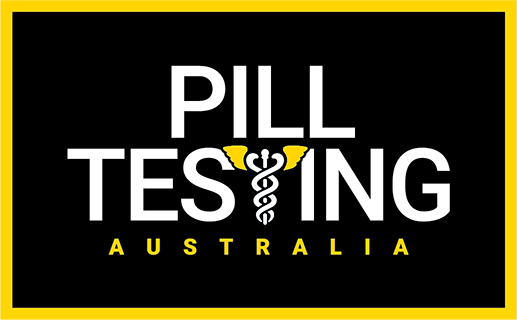Frequently Asked Questions

What is harm reduction?
Harm reduction refers to policies, programmes and practices that aim to minimise negative health, social and legal impacts associated with drug use, drug policies and drug laws. Harm reduction is grounded in justice and human rights. It focuses on positive change and on working with people without judgement, coercion, discrimination, or requiring that they stop using drugs as a precondition of support.
Taken from: Harm Reduction International (HRI)
For further information on harm reduction its principles and goals (available in multiple languages) see: https://www.hri.global/what-is-harm-reduction
What is drug checking?
Drug checking is a free and confidential harm reduction service that allows people to have the chemical contents of their drugs analysed for the active ingredient and for any unknown or dangerous substances. The results of the tests are communicated to the person to help them make informed choices and reduce potential harm through tailored harm reduction advice. Drugs that are identified to be a potential threat to public health can then be communicated to health officials and the wider public.
What equipment do we use?
The choice of equipment used is a balance between three elements – how robust it is, how fast is, and how accurate it is. PTA currently uses Fourier-transform infrared spectroscopy (FTIR), Ultra-Performance Liquid Chromatography-Photodiode Array (UPLC-PDA), fentanyl immunoassay test strips, and Ehrlich reagent tests. The specific equipment used depends on the service model and substance submitted for testing.
Below we go into more detail about each testing method.
Fourier-transform infrared spectroscopy (FTIR)
FTIR identifies substances by shining infrared light through a sample and measuring how the light is absorbed. Each substance has a unique “fingerprint” that can be compared to a library of known substances. FTIR is highly portable, durable, reliable and can be set up quickly. It works well in both fixed-site services and festival settings. It requires a very small sample for each test (a few milligrams or less), and results are available in just 2-3 minutes. FTIR is highly accurate for identifying common substances and mixtures. FTIR cannot provide information on the purity or doses of substances within a sample. It also cannot detect trace components or very small amounts of a substance and has limitations with detecting new or unknown psychoactive substances that have not been added to the library.
Ultra-Performance Liquid Chromatography-Photodiode Array (UPLC-PDA):
UPLC-PDA separates components of a sample using liquid chromatography, then identifies them by how they absorb UV light. The analysis results are compared to a library of data to verify the drug identity. The signal intensity can be calibrated to establish drug purity with the method being accurate and precise across a range of expected drug concentrations. It is extremely accurate, detecting even small or trace components when determining the purity of a substance. It is also relatively quick with results being provided in 5-10minutes. However, UPLC-PDA must be trained to identify specific substances, requires skilled technicians to operate and is not as portable as other methods.
Fentanyl immunoassay test strips:
These strips use antibodies to detect fentanyl and its analogues. A small amount of the dissolved sample is applied to the strip, which shows a reaction if fentanyl is present. The strips are portable, cheap, simple to use and provide results within 5 minutes. These strips are highly sensitive to event small amounts, this is important as fentanyl and its analogues are generally present at low levels and can be difficult for FTIR and other methods to identify. The strips if used incorrectly can lead to false positives. They are also limited to detecting the presence of fentanyl and do not provide information about the contents of the sample, or the concentration of fentanyl detected,
Ehrlich reagent tests
Ehrlich is a reagent (a specific liquid chemical) that reacts with a class of drugs that contain indols (LSD, psilocybin and DMT). When an indol is present the liquid reagent will change colour. Reagent tests, like Ehrlich, are easy to transport and use, and results are available in seconds. However, the test only indicates the potential presence of a substance based on a color change. It cannot determine the dosage, purity, or presence of other substances and is less precise than more advanced methods like FTIR or UPLC-PDA
What information do we provide?
We tell people what the most likely main ingredient is, and if they are present in sufficient quantities, what else might be there. We inform everyone about the limitations of our equipment, the risks of taking the identified substance (that no drug is safe) and provide tailored harm reduction advice.
Do we tell people drugs are safe?
PTA never informs people that a drug is safe, good or purse. Taking drugs – even pharmaceutical drugs – has risks. It is not possible for us to advise you that products manufactured on the black market are ever ‘safe’.
We will use our available testing equipment to identify what is in them, inform people of the limitations of our equipment, the risks of taking the identified substance(s), and provide you harm reduction advice so that you are less likely to need the services of the hospital emergency department. Everyone- without exception- is advised that if they want to be 100% certain of avoiding any harms associated with drugs, they’d be better off not taking any drugs.
Does Pill Testing Encourage Drug Use?
The evidence is quite clear that harm reduction programs, such as drug checking, needle and syringe programs, or heroin prescription programs, do not lead to an increase in drug use. There is research that shows such programs can lead to a decrease in drug use.
Does Pill Testing Condon Drug use?
PTA neither condemns nor condones drug use. People throughout history have used psychoactive substances and will continue to do so. Rather than cast judgment on people who use drugs, PTA believes that we should reduce the harms associated with drug use and provide opportunities for people to stop using drugs if they choose to do so.
The people who attend drug checking services for testing are already intending to consume illicit drugs. The absence of any intervention – our presence won’t make it any more likely. The idea that most people, when provided with information about the content of their drugs, will ignore that information, regardless of its nature, greatly underestimates a person’s desire to preserve their health. We may not be able to stop all consumers from taking their drugs, but we can certainly alter ‘how’ they take their drugs (taking fewer drugs, mixing fewer drugs…) in such a way as to avoid them coming to harm.
In addition, ‘fear-based’ health policy has little credence today. We have a far better idea of what actually works these days, and that’s a collaborative approach with the target population, providing them with information that is context specific to them, to allow them to make their own decisions.
Which is exactly what we do.
Is drug checking illegal?
In most Australian states and territories, drug checking services are still in the early stages of implementation, and the legal landscape varies. However, in locations where we operate, such as the ACT, our service is legally allowed to operate under strict health and safety guidelines. All testing and handling of products is conducted by professional, licensed analytical chemists, with an expertise in handling and processing illicit products. Our drug checking service is treated as a health intervention, and we follow all necessary legal frameworks to ensure that the service remains safe for all users.
Will I get in trouble?
No, you will not get in trouble for using our service. Pill Testing Australia operates as a health service focused on harm reduction. We prioritize your safety and confidentiality, and we do not share any of your personal information with law enforcement. Our goal is to give you the information you need to make safer choices, not to report or penalize you. We operate in a non-judgmental and supportive environment where you can feel safe seeking help
We only work in jurisdictions where law-enforcement understand what we are doing – providing a harm reduction service. Our services will always be located within the medical precinct, which police will not attend unless specifically requested by medical professionals, usually as a consequence of a threat to medical personnel. That doesn’t mean that the law enforcement agencies at festivals we attend won’t arrest you outside of the medical precinct for drug possession- they just understand that we are providing a medical service, which requires a degree of patient confidentiality.
What substances can I test?
You can bring in a wide range of substances to be tested at our service. We test pills, powders, and liquids, including common recreational drugs like MDMA, cocaine, and ketamine, as well as substances you’re unsure about. Our equipment can detect active ingredients, cutting agents, and harmful substances like fentanyl or novel psychoactive substances (NPS). While we do our best to test everything, certain very new or rare substances might not always be detectable.
How much does it cost to test my drugs?
Nothing – not under the system under which we operate. Other systems overseas charge for their services, but we have committed to an ethical principle (The Trans-Tasman Charter- check it out here), committing to never charging people for trying to look after their health.
How long does testing take?
Depending on how busy we are, the testing process doesn’t take long at all. Once you enter the service, we take you through a consent process, ask you a few questions on your demographics and the drugs you’re testing, then we hand over to the chemists. They then test your sample, our team advises you of the results, and you can take a few minutes to sit down and chat about with our harm reduction workers. You can stay and chat for as long as you’d like to, otherwise the testing process itself takes about 15 minutes.
What is the history of Pill Testing?
If you are based in Australia, you may perceive ‘pill testing’ or drug checking as a reasonably new and potentially controversial initiative, but it’s not. At the last count there were dozens of groups conducting pill testing in Europe, North and South America, and New Zealand, with that number growing every year.
1980s
The drug ecstasy emerged in Europe and the US. Almost as soon as it moved from niche markets and into the mainstream, reports began emerging of contaminated or tainted product.
1990s
In an effort to avoid impure product, consumers co-opted reagent tests being used by law enforcement to try and ascertain the purity of their drugs. At the time, there weren’t that many products on the market, and reagent testing was not an awful option.
1991
The publication of “Pill Testing – Harm Minimisation gone too far?” Despite the fact that the article was only speculative in nature, it was used more than any other in Australia as ‘proof’ that pill testing should not be introduced.
1992
DIMS was founded in the Netherlands.
1995
Technoplus founded in France.
1996
Modus Fiesta founded in Belgium
1997
Checkit! Founded in Austria
1998
SaferParty founded in Switzerland, Dancesafe founded in USA
1999
Energy Control founded in Spain, SINTES founded in France
2000s
A collaboration between The Enchanted Forest music festival in South Australia, The Enlighten Advocacy group, and Emergency Doctors conducts and evaluates pill testing in Adelaide hinterlands.
Public support for pill testing voiced by some senior AOD figures in Australia
2002
Publication of “PILL TESTING, ECSTASY & PREVENTION- A SCIENTIFIC EVALUATION IN THREE EUROPEAN CITIES”. Quite explicitly, it found that “pill-testing, which is basically a secondary prevention measure, is of direct benefit for the primary prevention of ecstasy use, for example because it motivates potential users to refrain from or postpone their first use of the drug.”
ANKORS establishes drug checking in Canada
2005
The publication of “Underground Pill Testing, Down Under”, still the only report from Australia detailing the results of pill testing at Australian music festival, is published in Forensic Science International. It directly compares the results of reagent testing with laboratory GC/MS, and finds that the former falls short.
In November, after long discussions with the group working in South Australia and others, the Public Health Working Group of the Australian Medical Association passes a resolution calling for a “medically supervised… ethically approved trial… of pill testing in an Australian jurisdiction.”
First described ‘novel psychotropic’ (‘social tonic) in Australia- methylone, 200mg, >99% purity, sold in packets of 4 called ‘Ease’
2007
The protocol for the Royal Adelaide Hospital Based Illicit Testing Project was developed, but did not receive political support in Australia. It later went on to form the template for WEDINOS in Wales, and ACTINOS in the ACT.
2011
Trans-European Drug Information project (TEDI), a network of European Fieldwork Drug Checking services that shares their expertise and data within a European monitoring and information system, established.
2013
Good Practice Guidelines for Drug Checking Services (funded by the EU), produced by NEWIP, in conjunction with TEDI.
The Loop established in the UK – providing back-of-house testing.
2015
At the ‘Club Health’ Conference in Lisbon, numerous presentations were heard regarding data being collected from ‘drug checking’ programs in Europe. Australian delegates returned from the conference with a determination to work towards an Australian model. Harm Reduction Australia is launched – with the introduction of pill testing a key priority.
2016
In a bipartisan meeting of researchers and all three of Australia’s major political parties, all of Australia’s major AOD research groups agreed that a system of pill testing should be introduced in Australia as ‘a matter of priority’. A coalition of medical professionals, peer groups and NGOs form the STA-SAFE Consortium to deliver pill testing. Membership was widely canvassed, including a condition of Chatham House rules.
2017
Despite wide support from the local community, attempts to establish pill testing at the Spilt Milk Festival in the Australian Capital Territory are blocked by a collaboration of conservative territory and federal politicians.
2018
The first state or territory sanctioned pilot of pill testing in Australia occurs at the Groovin’ The Moo, conducted by the STA-SAFE Consortium.
The Trans-Tasman Charter of Ethical Conduct for Pill Testing is developed
Independent evaluators from the Australian National University are appointed by the STA-SAFE Consortium to formally evaluate future pill testing services conducted by the Consortium
The STA-SAFE Consortium is re-launched as Pill Testing Australia.
Pill Testing Australia commits to open exchange of data with the TEDI network
Makkai, T., Macleod, M., Vumbaca, G., Hill, P., Caldicott, D., Noffs, M., Tzanetis, S., Hansen, F., 2018, Report on Canberra GTM Harm Reduction Service, Harm Reduction Australia. [Link to reports]
2019
Pill Testing Australia delivered a second, larger scale festival testing trial.
The service was independently evaluated by researchers from ANU:
Olsen A, Wong G, McDonald D. (2019). ACT Pill Testing Trial 2019: Program Evaluation. Australian National University: Canberra ACT. [Link to reports]
2020
ACT Health released the Festivals Pill Testing Policy:
2022
After years of engagement and advocacy, the ACT Government committed to funding a 6-month fixed-site pill testing trial. CanTEST is a partnership of Directions Health Service, the Canberra Alliance for Harm Minimisation and Advocacy (CAHMA), and Pill Testing Australia launched Australia’s first fixed-site pill testing service. The service delivery model was an adaption of the festival testing trials. The CanTEST trial is evaluated by ANU.
2023
Following the interim report on CanTEST’s first three months of service delivery, the ACT Government announces the trial is extended for another 7 months.
Olsen A, Baillie G, Bruno R, McDonald D, Hammoud M, Peacock A (2022). CanTEST Health and Drug Checking.
Service Program Evaluation: Interim Report. Australian National University: Canberra, ACT: https://www.health.act.gov.au/sites/default/files/2023-01/Interim%20Report%20Submitted%2019_12-22.pdf
Queensland Government announces it will support a trial of festival-based pill testing.
2024
Pill Testing Australia delivers the first multi-day festival drug checking service ar Rabbits Eat Lettuce.
How can I support Pill Testing in Australia?
Donate [link to Give now] to support PTA to deliver free drug checking services across Australia
Visit our shop [link] proceeds help support our services and spread our message.
Join HRA and have your voice heard!

